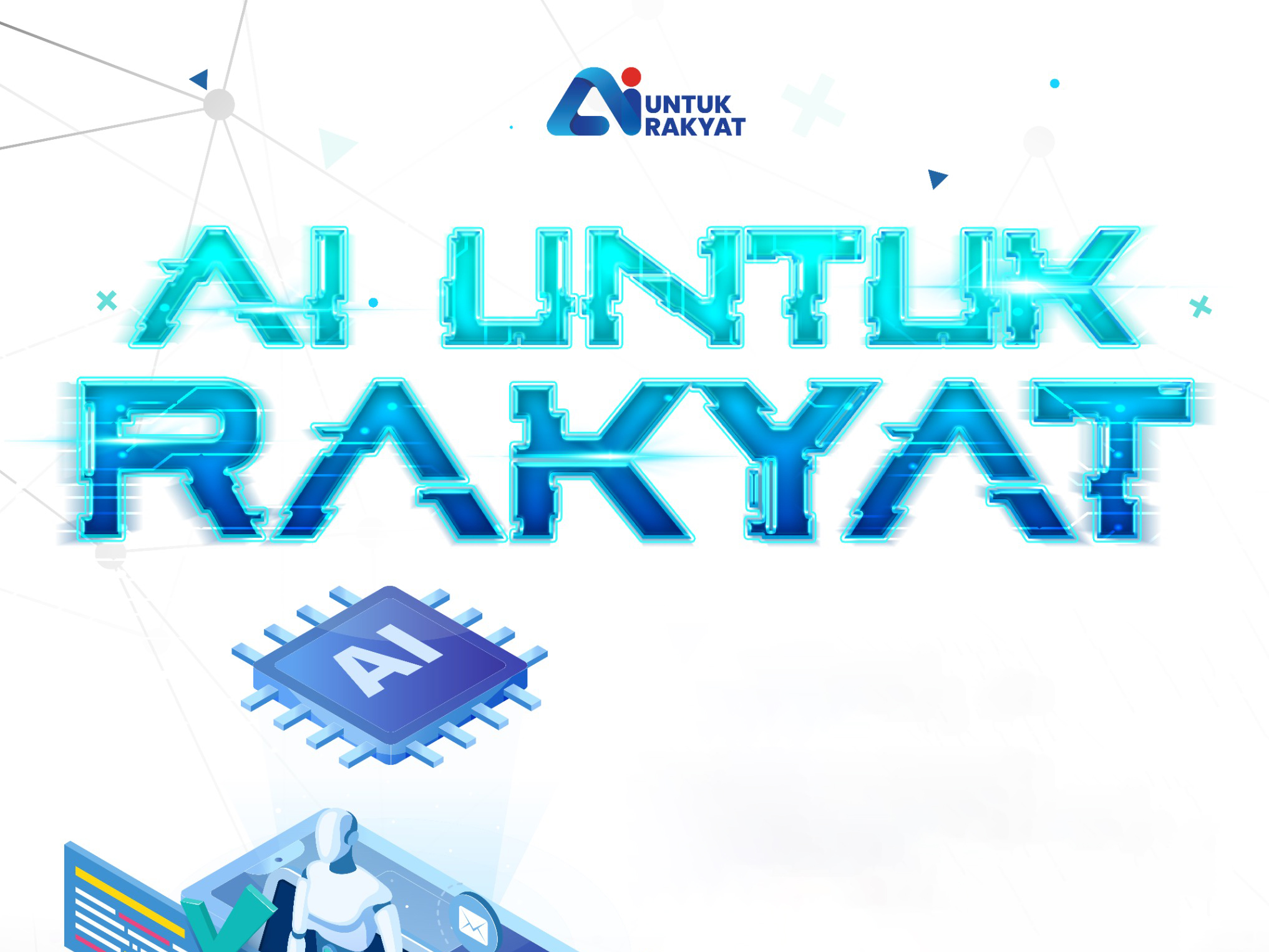Bite-Sized News Bits
Compilations of the latest news on 4IR and technological wave
“AI for Rakyat” a Step Towards Making Malaysia Top Global AI Hub, Says Rafizi
The "AI for Rakyat" is a self-learning portal to introduce artificial intelligence (AI) to the masses and to rid fears that AI will replace humans, says Rafizi Ramli.
The economy minister said that the self-learning portal, designed by the Economy Ministry and Intel, will bring AI to the masses in four languages - English, Malay, Mandarin and Tamil.
The minister further said that the government has a target of one million Malaysians being able to master AI skills in three years.
"The country's aspiration to be a higher income nation can be realised with technology such as AI. This is because a report stated there is a potential to generate US$113.4 billion in Malaysia if AI technology is used in all sectors.
"Malaysia has set the aspiration of launching the 'KL20' blueprint to place Malaysia among the top 20 countries globally that offer the best ecosystem to incubate start-up businesses," said Rafizi, pointing out the potential to reset Malaysia as the ASEAN gateway for AI technology.
"He said that to ensure it becomes a reality, there must be a robust ecosystem and an open policy on data and talent.
NVIDIA (NVDA) Taps Southeast Asia Amid China Sales Restriction
NVIDIA Corporation NVDA is focusing on deepening its business relationship with Southeast Asian nations amid growing tensions between the United States and China, as evidenced by some recent events. Over the past week, the co-founder and CEO of the U.S.-based semiconductor company, Jensen Huang, has visited three Southeast Asian countries: Singapore, Malaysia and Vietnam.
During his visit to these nations, Huang stated that Southeast Asia could be a critical technology location. Considering the region’s expertise in packaging, assembling and battery manufacturing, he believes it can play a significant role in the semiconductor supply chain.
During his trip to Malaysia, NVIDIA signed an artificial intelligence (AI) infrastructure deal with the Malaysian conglomerate YTL’s subsidiary, YTL Power International. Per the agreement, the two companies will work together on building AI capabilities at YTL’s data centre complex in Kulai, Johor. The first phase of the project is anticipated to be operational starting mid-2024. The deal is expected to be worth US$4.3 billion.
Offside Technology Set for Landmark Debut at Asian Cup in Qatar
The upcoming AFC Asian Cup in Qatar is set to feature the innovative Semi-Automated Offside Technology (SAOT), previously showcased at the FIFA World Cup last year.
This marks the technology’s first appearance in a major Asian men’s football tournament. The SAOT operates using 12 high-precision cameras installed around the stadium. This strategy is further emphasised by the full-scale implementation of the Video Assistant Referee (VAR) system throughout the Asian Cup.
The VAR system, which made its partial debut during the quarterfinals of the 2019 tournament, will now be a standard feature, ensuring a more fair and consistent application of the rules.
Philippines to Propose ASEAN AI Regulatory Framework
The Philippines plans to propose creating a Southeast Asian regulatory framework to set rules on artificial intelligence (AI) based on the country's draft legislation, the speaker of its Congress said.
At the World Economic Forum in Davos, Martin Romualdez said on a panel that the Philippines would present a legal framework to the Association of Southeast Asian Nations (ASEAN) when it chairs the bloc in 2026.
"We'd like to give a legal framework to the ASEAN as a gift. Even in our economic policy, digitisation is very much right up there as a priority. Alongside that is cybersecurity and the concomitant concerns and issues as generative artificial intelligence, a field that needs much support and regulation. We feel that we can capitalise and optimise these developments in ASEAN, but within a regulatory support framework for this," he said.
Smart Glasses Are Fun for Users — But Could They Violate the Privacy of Others?
Augmented reality glasses, often called smart glasses, can certainly make life easier for the wearer, but what about everyone else within view? Researchers from Cornell University warn that smart glasses can potentially create a major “power imbalance” between the haves and have-nots. More specifically, researchers warn someone wearing such glasses could covertly Google your face or record your conversations without your knowledge.
The results showed that while people wearing smart glasses usually report declining anxiety, the opposite held for everyone else. Most current AR glasses superimpose virtual objects and text over the wearer’s field of vision to create a “mixed-reality” world, similar to the futuristic display Tony Stark sees in his glasses in the Marvel comic movies.
Researchers Successfully 3D Printed Hand with Bones, Ligaments and Tendons
Researchers have successfully printed a robotic hand complete with bones, ligaments and tendons made of different polymers for the first time. The breakthrough was possible thanks to a new laser technique.
Researchers at ETH Zurich, who conducted the work, believe it opens up new possibilities for producing robotic structures that combine soft, elastic and rigid materials.
"Robots made of soft materials, such as the hand we developed, have advantages over conventional robots made of metal. Because they're soft, there is less risk of injury when they work with humans, and they are better suited to handling fragile goods," ETH Zurich robotics professor Robert Katzschmann explained.
SingPost Advances Digital Innovation in Integrated Logistics with Generative AI from Google Cloud
Google Cloud and Singapore Post Limited (SingPost) announced a strategic collaboration to accelerate SingPost’s digital transformation journey and drive its next phase of sustainable growth. This multi-year collaboration aims to empower SingPost employees with easy-to-use AI-powered tools, helping them boost productivity, streamline repetitive tasks, and foster seamless collaboration with external partners and customers.
The company will run its business on Google Cloud, empowering employees with enterprise-grade AI tools to reshape eCommerce logistics and achieve productivity gains.
MIDA Emphasises Technology Adoption, ESG Practices for Sustainable Investment Ecosystem
The Malaysian Investment Development Authority (MIDA) is committed to unearthing cost-effective mechanisms aimed at accelerating investments in sustainable projects in sectors such as renewable energy, hydrogen and green growth, in line with the government’s aspiration for net-zero emissions by 2050.
According to MIDA chairman Tan Sri Dr Sulaiman Mahbob, emphasis has been placed on promoting research and development (R&D) activities and identifying the latest technology trends and emerging technologies. "Collaborative efforts with industries, both local and foreign R&D institutions, as well as technology providers are also pursued," he said.







